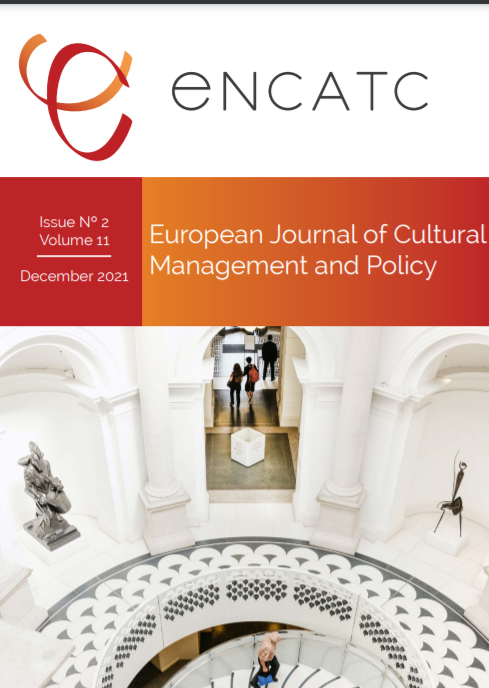In its latest popular scientific publication, ENCATC continues to stimulate debate on the topics of cultural management and cultural policy among scholars, educators, policy makers and cultural managers.
Based on a multidisciplinary perspective and with aims to connect theory and practice in the realm of the cultural sector, the two new issues have a combined 9 articles with the latest research coming from Denmark, Estonia, Finland, France, Italy, Mexico, Spain, and Ukraine.
Volume 11, Issue 1:
This article analyzes participatory governance in relation to heritage. Based on previous studies on the implementation of participation and theoretical discussions considering the participatory governance of cultural heritage, we found four types of cultural heritage governance, with differing weights with regard to public authorities, civil society, markets, and citizens. Governmental, corporatist, service-led, and co-creative cultural heritage governance types were identified, which reflect the shifts in participatory approaches to governance from state-centered activities to the proliferation of civil society, and from professionally dominated to more citizen-based activities. According to our analysis, culture and heritage can be conceptualized as instruments for the transformation of attributes and competencies, and they work as mediums to cultivate recognition between institutions and citizens. This includes not only seeking consensus in decision making but also respecting the nuances and values of different heritages.
Find the article here.
Volume 11, Issue 2:
This paper investigates the Continuing Professional Development (CPD) experiences of performing arts professionals during the COVID-19 pandemic in Italy. The research is aimed at examining actors’ approaches and challenges to inform current and future CPD strategies, better suited to address the uncertainties of the social and economic juncture. The following four main themes are elicited by the research: the renewed need for self-directedness in CPD, the struggle to overcome the decrease in CPD opportunities in the workplace environment, the intensification of the use of social media for CPD purposes, and the role of CPD in the diversification of competencies. The investigation shows that CPD is still a relatively underdeveloped subject in the performing arts sector and that the attitudes towards, environments of, platforms for and focus on CPD will benefit from a critical re-evaluation in the postdigital context. Implications of these results for practitioners, policymakers, and public and private organisations are discussed.
Find the article here.








